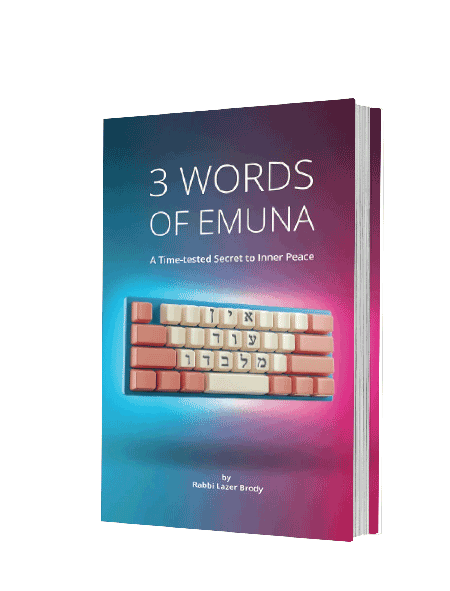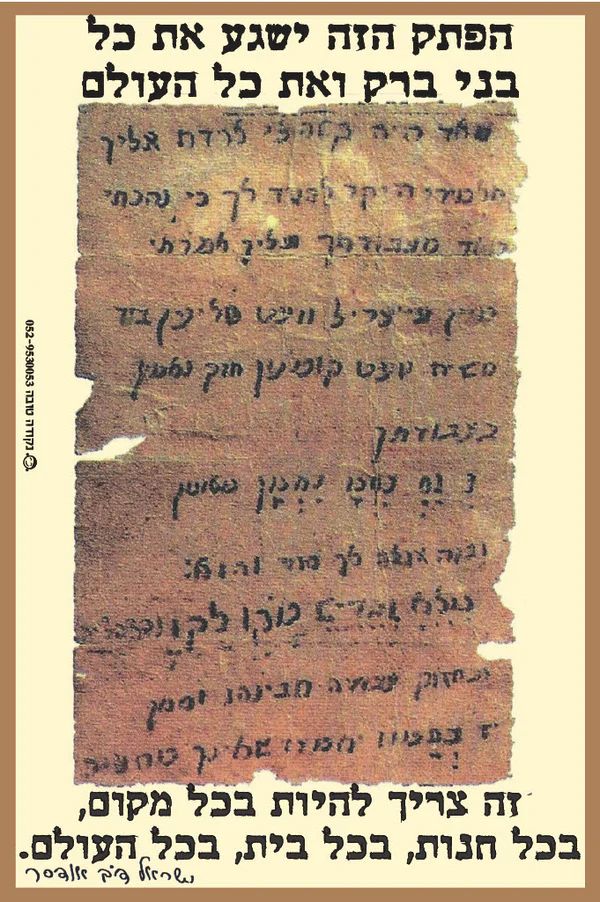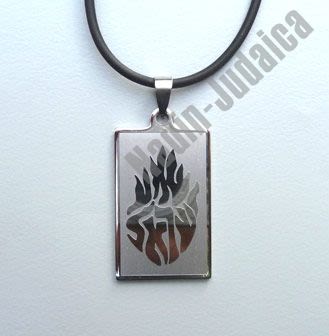
Shoftim: Become Your True Self
When we hear the word “teshuva,” we usually think of blaming ourselves and beating our breasts. But real teshuva – repentance – is about becoming our real selves.

This week’s Torah portion begins with the command to establish courts in every city in the land of Israel to settle disputes between people: “Judges and officers shall you appoint in all your cities which Hashem, your G-d, gives you for your tribes; and they shall judge the people with righteous judgement” (Chapter 16, Verse 18 and Artscroll commentary).
Rabbi Natan of Breslev teaches that when the judges and the rabbis make a fair judgement between two people who have a dispute, this is the aspect of teshuva (repentance). For example, someone who tried to steal from someone else wanted to uproot the object from its root and bring it to a foreign, external place. When the judges decree a ruling that is true and clarifies the truth of the case, then the money or the object is returned to its proper place and to its root. This is the aspect of teshuva. Therefore, judgement is called “a judgement of peace,” as it is written, “Speak the truth with one another; and in your gates judge with truth, justice and peace” (Zechariah 8, 16). The main aspect of judgement is making peace between the quarreling parties (Likutei Halachot, Laws of Authorization, 2nd teaching).
Teshuva – repentance. This is the word of the next two months! We have now entered the final month of the year in the Jewish calendar – Elul. When people hear the name Elul, they think about teshuva and about preparing for the High Holy Days of Rosh Hashanah and Yom Kippur. Many times, we feel excited for this special time of the year, and at the same time, apprehension for the High Holy Days which are approaching. How can we all connect to teshuva in a deeper way; in a way which awakes our ratzon (will) and not unnecessary fear? What does teshuva mean beyond the important aspect of confessing our sins before Hashem and asking Him to help us change our ways?
Teshuva is returning something to its root. When we pursue a life of teshuva, we return to our true place. Slowly we feel inside more peace and more happiness that we are returning to ourselves and living a life of purpose.
Rebbe Nachman begins his collection of stories with the story of the Lost Princess, which contains an amazing message about the power of teshuva and our longing to return to our souls and to Hashem. It’s about never giving up and longing to find the Lost Princess, who represents our souls. The story begins: “On the way I told a story, and anyone who heard it would have a thought of teshuva.”
What does it mean “to have a thought of teshuva”? A thought of teshuva is when we think to ourselves that I still have hope – hope to return to Hashem and correct my ways, despite everything I’ve done and everything I’ve gone through in my life. From this point onwards I can choose a new path – I can change. Even if I still haven’t done any actual steps of teshuva, just this thought of teshuva, that I have hope and I can change, means that I’m changing my mistaken internal perspective which tells me that I have no chance.
When someone decides to lose weight, for example, it could very well be that it will take more time (or a lot more time) before they actually lose the weight they want to. However, the decision to change, the internal desire that things will be different and the faith that it’s possible to live differently are the most important principles when we begin to walk along the path of teshuva.
Rebbe Nachman teaches in Likutei Moharan, in the 35th teaching in Part One, that teshuva means to return something to the place where it was taken from. The beginning of the process of returning to our root, to our true selves and to a deep connection with Hashem, begins with these thoughts of teshuva (Based upon a section from Ran Weber’s new book, Surely There is Love, page 36).
Rebbe Nachman explains in one of his main teachings about teshuva, in the 6th teaching in the first part of Likutei Moharan, that when we want to change and correct our mistakes and return to ourselves, then we begin to have a true experience of life in this world. Teshuva is the aspect of the name of Hashem, “I will be” אהיה (with this name Hashem revealed Himself to Moshe at the beginning of the book of Shemot/Exodus). This means that we are saying before Hashem and to ourselves “I am ready to be.” I am ready to become who I am meant to be. I am ready for the journey of teshuva.
Teshuva is embarking on the journey to becoming who we truly are. We are beautiful souls, created and brought into the world by Hashem in His infinite love. I am ready to be who I truly am. Teshuva is returning something to its root, to its home.
***
Republished with permission from breslov.blog.










Tell us what you think!
Thank you for your comment!
It will be published after approval by the Editor.